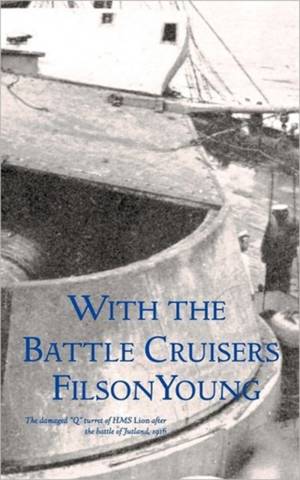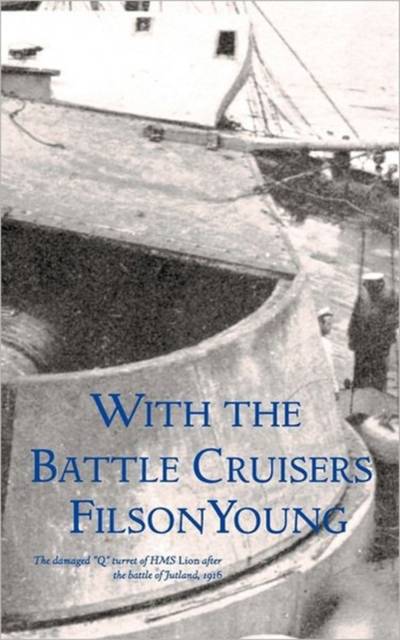
Wil je zeker zijn dat je cadeautjes op tijd onder de kerstboom liggen? Onze winkels ontvangen jou met open armen. Nu met extra openingsuren op zondag!
- Afhalen na 1 uur in een winkel met voorraad
- Gratis thuislevering in België vanaf € 30
- Ruim aanbod met 7 miljoen producten
Wil je zeker zijn dat je cadeautjes op tijd onder de kerstboom liggen? Onze winkels ontvangen jou met open armen. Nu met extra openingsuren op zondag!
- Afhalen na 1 uur in een winkel met voorraad
- Gratis thuislevering in België vanaf € 30
- Ruim aanbod met 7 miljoen producten
Zoeken
Omschrijving
The single best work of reportage about the battlecruiser, ever, by a war correspondent who was with Beatty's Battlecruiser Squadron at Jutland. Filson Young: the Bob Woodward of battlecruisers. An excerpt: Here, then, was the ideal type for which Lord Fisher in our conversations had so often sighed; and I was secretly disappointed when, on my mentioning Fisher's name, Beatty merely smiled. And I was still more crestfallen when, a few days later, I spoke of Beatty enthusiastically to Lord Fisher, he gave me a blank, sour look and said: "Really? Never met him." I did not know the Navy as well in those days as I know it now, or I would have been less surprised than I was that the obviously ablest men in control of naval affairs were far from seeing eye to eye with one another, and even (what was more remarkable) neglected to make any real study of one another's aims and potentialities. Naval thought, where it existed, was divided into camps, each one regarding victory over the others as essential to victory over the Germans. Thus Lord Charles Beresford, whose best work in his retirement was his untiring public advocacy of naval efficiency, gave one in private a most alarming impression that the Navy was already practically in German control; and one of his mildest views of Lord Fisher was that he was a madman who, on the eve of war, had deliberately scrapped the majority of our cruisers. Winston Churchill was at one time probably one of the men most disliked by the Navy at large; but when one tried to discuss his administration seriously, one was told stories of his bad manners: as, for example, of his going on board a ship, entering the wardroom, ringing the bell and sending for the Commander - a solecism the gravity of which one must have lived in a wardroom to appreciate. And yet, one felt, it was not quite an argument against his efficiency as an administrator. But all the naval officer saw was a man to whose power our sacred naval traditions were committed, and who apparently knew or cared so little for the smallest of them that the greatest might well be in peril at his hands. The anti-Churchill camp was a very strong one. He, on the other hand, seemed to regard Lord Fisher as a dangerous genius to be caught, chained, tamed, and made careful use of; Lord Fisher regarded him (I am speaking of the two years before the war) as a politician to be fought or flattered, made or destroyed, according to his degree of adaptability to the great purpose.
Specificaties
Betrokkenen
- Auteur(s):
- Uitgeverij:
Inhoud
- Aantal bladzijden:
- 382
- Taal:
- Engels
Eigenschappen
- Productcode (EAN):
- 9781608881321
- Verschijningsdatum:
- 31/05/2011
- Uitvoering:
- Hardcover
- Formaat:
- Genaaid
- Afmetingen:
- 152 mm x 229 mm
- Gewicht:
- 675 g

Alleen bij Standaard Boekhandel
+ 86 punten op je klantenkaart van Standaard Boekhandel
Beoordelingen
We publiceren alleen reviews die voldoen aan de voorwaarden voor reviews. Bekijk onze voorwaarden voor reviews.











